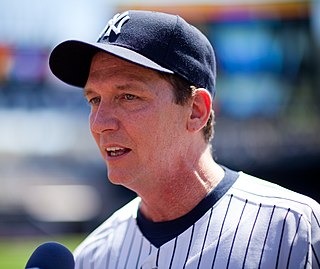A Quote by Ben Goldacre
Data is the fabric of the modern world: just like we walk down pavements, so we trace routes through data, and build knowledge and products out of it.
Related Quotes
Data isn't information. ... Information, unlike data, is useful. While there's a gulf between data and information, there's a wide ocean between information and knowledge. What turns the gears in our brains isn't information, but ideas, inventions, and inspiration. Knowledge-not information-implies understanding. And beyond knowledge lies what we should be seeking: wisdom.
When dealing with data, scientists have often struggled to account for the risks and harms using it might inflict. One primary concern has been privacy - the disclosure of sensitive data about individuals, either directly to the public or indirectly from anonymised data sets through computational processes of re-identification.
There will soon be streams of data coming from all manner of products - appliances, clothing, sporting goods, you name it. Wouldn't you rather live in a world where you can export the data from your son's football helmet to a new app that monitors force and impact against a cohort of high school players around the country?
We just kind of relied on written scouting reports through the eighties and even the early nineties. I've really been amazed by some of the data that's out there, especially with regards to tendencies of hitters, and certainly tendencies of pitchers as well. I would have loved to have gotten that data when I played.
You have to imagine a world in which there's this abundance of data, with all of these connected devices generating tons and tons of data. And you're able to reason over the data with new computer science and make your product and service better. What does your business look like then? That's the question every CEO should be asking.
One of the myths about the Internet of Things is that companies have all the data they need, but their real challenge is making sense of it. In reality, the cost of collecting some kinds of data remains too high, the quality of the data isn't always good enough, and it remains difficult to integrate multiple data sources.






































